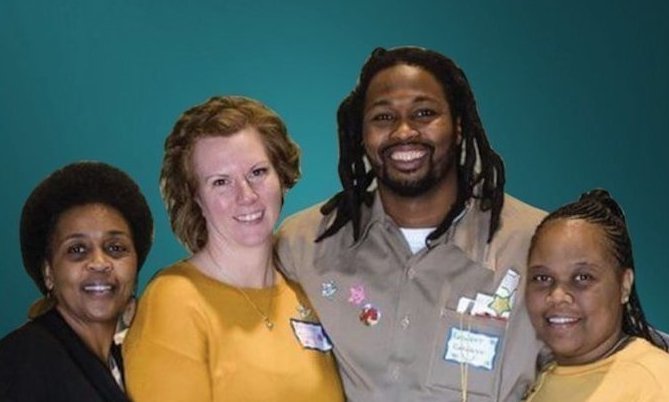![]()

A Nebraska man who has spent 22 years in prison for a fatal shooting in 1999 that he says he had nothing to do with has again rejected for release by the state Pardons Board.
Earnest Jackson was convicted of accessory to murder in the death of Larry Perry. Jackson was the first of 3 defendants to be tried, but the other two were acquitted at trial with the jury ruling that the man who shot Perry had acted in self-defense.
Jackson had filed and lost multiple appeals over the years based on the verdicts from the second trial and the testimony of the shooter that Jackson wasn’t there, so the Pardons Board is his last chance to get out before possible parole in 2030.
The Pardons Board – made up of Gov Pete Ricketts, Attorney General Doug Peterson, and Secretary of State Bob Evnen – took no testimony before unanimously turning down Jackson’s petition yesterday.
Ricketts later said Jackson has been a difficult prisoner, amassing 275 separate misconduct reports over his 22 years in prison, and that several of Perry’s family members opposed a commutation.
Peterson pointed out that Perry was shot 6 times in the back with 3 different guns, and that other eyewitnesses had placed Jackson at the scene of the shooting, adding that the Pardons Board wasn’t going to retry the case.
Jackson’s supporters were disappointed by the board’s decisions and by the comments from Ricketts and Peterson, including Perry’s son and girlfriend – who both sent letters of support to the board.
Peterson’s sister challenged the governor’s characterization of her brother, saying he’d been written up only 4 times in the last 7 years, that another inmate admitted to the most serious violation, and that Jackson had received a positive write-up just last year for preventing a fight in the prison yard.
Attorney Daniel Gutman of Omaha was critical of Peterson’s analysis, saying the fact there were multiple guns involved was meaningless because Jackson’s jury essentially said he was unarmed by finding him Not Guilty of possessing a deadly weapon.
Gutman also says that since the jury in the second trial concluded there had been no murder, only self-defense, Jackson couldn’t be guilty of accessor to murder – adding that it’s legally impossible to be found guilty of being an accessory to self-defense.
Jackson, who was 17 at the time of the incident, was originally sentenced to life without parole, but was resentenced in 2016 to 60-to-80 years after the U-S Supreme Court ruled in another case that a minor couldn’t be sentenced to life.
